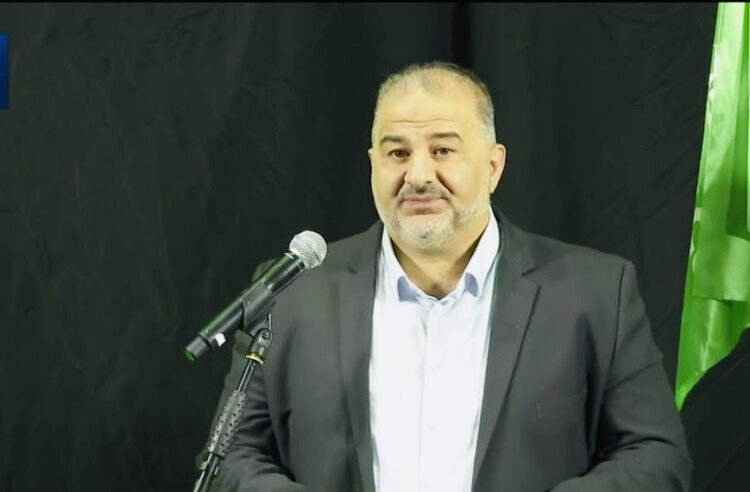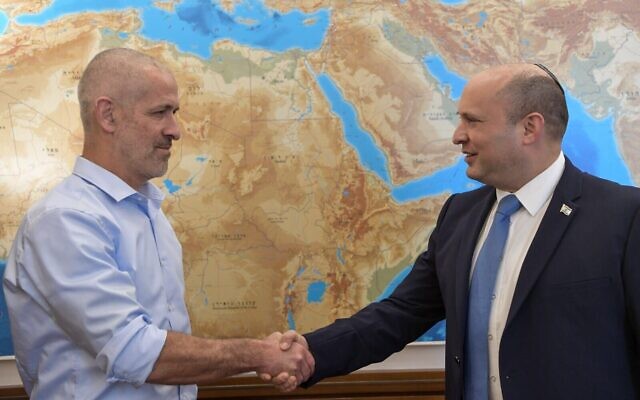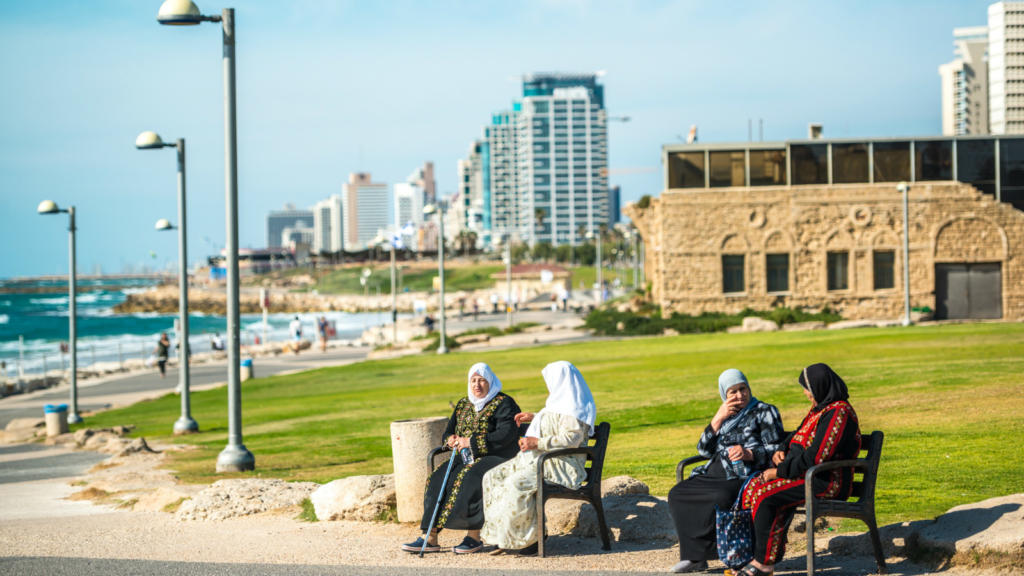The inclusion of an Arab party in Israel’s coalition government already has had a significant material impact on the Israeli Arab community.
When Prime Minister Naftali Bennett unveils the budget next month, an unprecedented $10 billion in state funds will be allocated to the generally neglected Arab sector, comprising 21 percent of Israel’s population.
The funds, scheduled to be disbursed over a five-year period, are intended to end the stark economic gaps between Jews and Arabs, half of whom live under the poverty line.
They will be used to rebuild crumbling infrastructure, upgrade substandard public services, reduce urban overcrowding, increase access to health care and Hebrew language lessons, integrate Arabs into Israel’s booming high-tech economy and, last but not least, fight the wave of violent crime plaguing Arab communities.
These objectives might have remained a pipe dream had it not been for the efforts of Mansour Abbas, the pragmatic leader of the Islamist Ra’am Party, which has four seats in the 120-seat Knesset.
Like most Arab politicians in Israel, Abbas could have focused on issues pertaining to the Arab-Israeli conflict and a two-state solution, which are dear to the hearts of Israeli Arabs. Instead, he chose to concentrate on bread-and-butter matters that materially affect his constituents in particular and their fellow Arabs in general.

Without Abbas’ backing, Bennett could not have cobbled together a right-center-left coalition this past June. If Bennet had failed to form a government, a fourth election in two years would have been necessary, and Benjamin Netanyahu would probably have been the caretaker prime minister now.
In exchange for his political support, Abbas extracted the aforementioned concessions from Bennett and his partner, Yair Lapid, the alternate prime minister and foreign minister, who will assume the premiership in two years under their rotation agreement.
With a new budget looming on the horizon, Abbas is still in the driver’s seat. He has told Bennett that unless the $10 billion in special spending is included in the November budget, his party will not vote for it.
This is no idle threat.
If the budget is not approved by a majority of Knesset members, Bennett’s government will fall, necessitating fresh elections and raising the possibility that Netanyahu will return as prime minister.
As formidable as Abbas’ clout ands leverage may be, it is ultimately limited. Although he lobbied for the removal of the 2017 Kaminitz law, which controls unregulated Arab construction, it will not be annulled. And though he had hoped to legalize upwards of 14 unrecognized villages in the Negev Desert, where his supporters live, Bennett agreed to legalize only three.
Be that as it may, the current development plan for the Arab minority — the descendants of Palestinians who remained in their homes during the 1948 Arab-Israeli war — is far bigger than the one unveiled by Netanyahu in 2016.
Calling for an investment of $3.8 billion over five years, it was not fully implemented due to bureaucratic problems and the misappropriation of funds by Arab organized crime, according to reports.
The consensus among Arabs is that violent crime is the overriding issue facing their community. One hundred and one Arabs, including 15 Palestinians from the West Bank, have been killed so far this year, compared to 42 homicides in the Jewish sector.
Shimon Lavi, the commander of the Israel Police’s northern district, where a large proportion of Arabs live, claims they are responsible for 99 percent of the murders, 90 percent of the shootings, 80 percent of the robberies and 65 percent of arson incidents.

According to Public Security Minister Omer Barlev, the violence is rooted in Israel’s neglect of Arab communities. In practice, Arab localities have received a proportionately smaller slice of the budgetary pie than Jewish ones.
Earlier this month, Bennett convened a ministerial meeting to combat the epidemic of crime. Two decisions emerged from their deliberations.
First, the Shin Bet internal intelligence agency will be deployed to work on the problem. “This is obviously a national mission,” said its newly appointed director, Ronen Bar.

Second, the government wants to expand the ability of the police to conduct searches without court warrants. As Justice Minister Gideon Sa’ar said, “We’re at war. We must give the police and law enforcement agencies better tools to succeed in their missions.”
Hassan Tawafrah, the director of a government office charged with advancing Israeli Arab economic development, is of the view that the war on crime must be composed of two elements: strengthening the police presence in Arab communities and providing young people with marketable skills.
Such programs, if implemented, would deal with the conditions that have spawned Arab criminal activities.
Abbas’ economic advisor, Alaa Ghantous, who played an integral role in shaping the government’s five-year plan, has no illusions that the latest plan will yield immediate concrete results.
“It is difficult to change the whole system from one day to the next,” he said recently. “It’s not easy. But what we’re trying to do today is to reduce the sharpness of this neglect in all kinds of areas.”
If the plan succeeds, Israel will have taken a giant step forward in the right direction.
